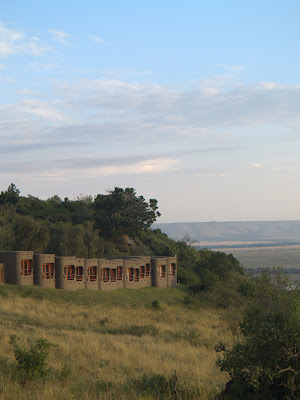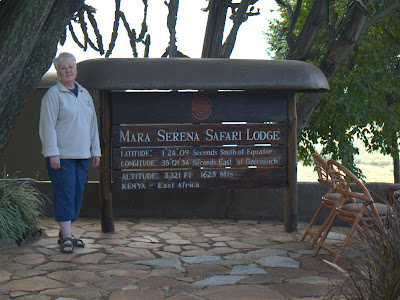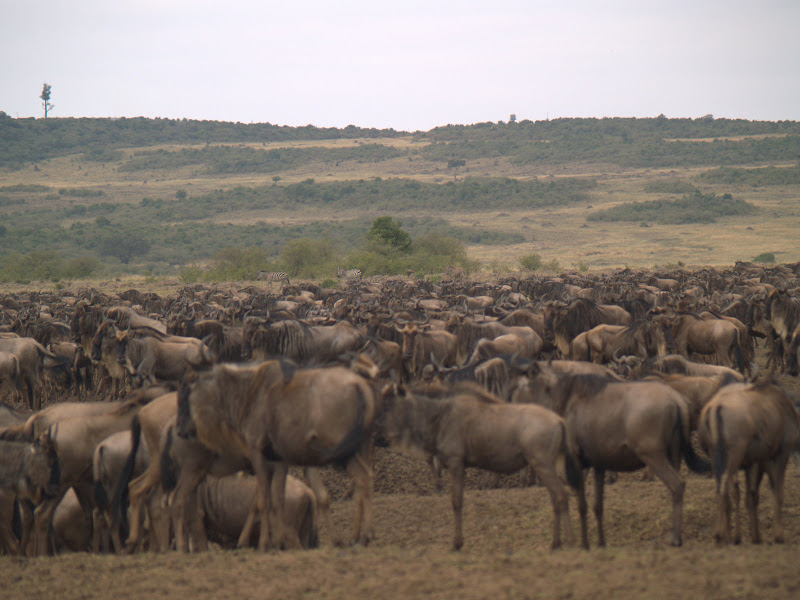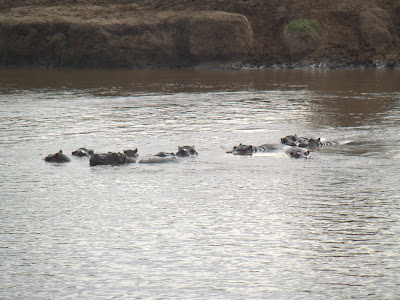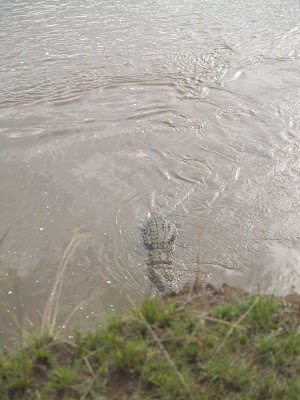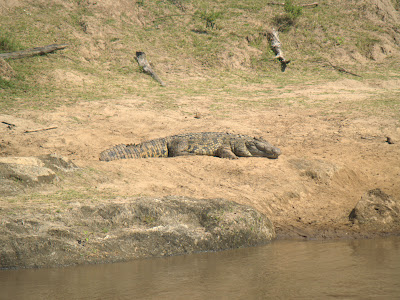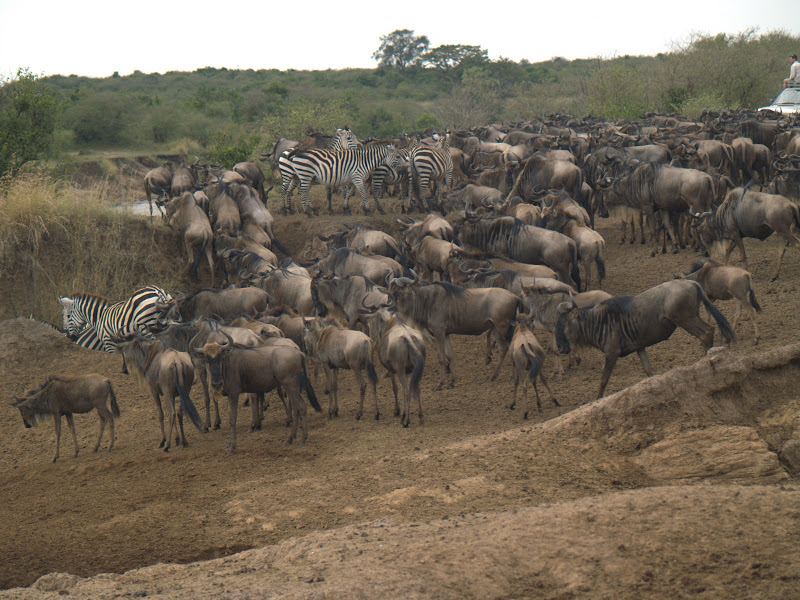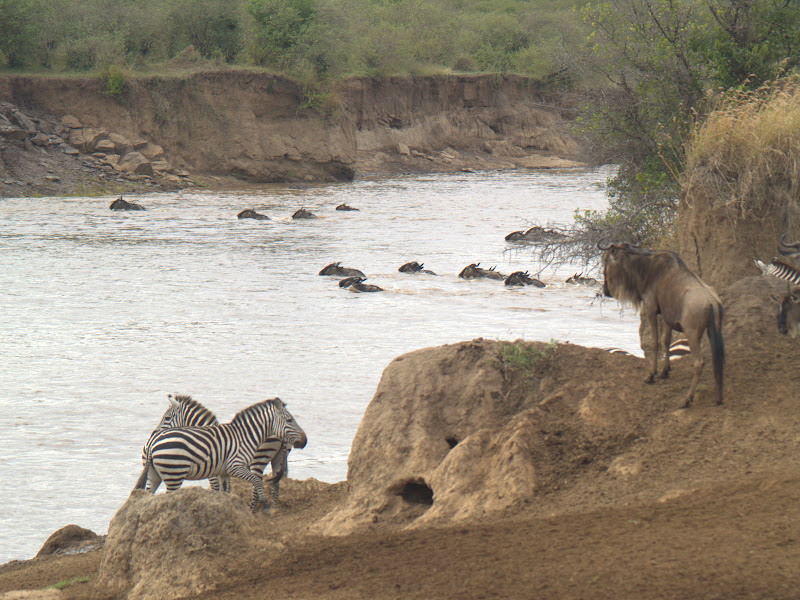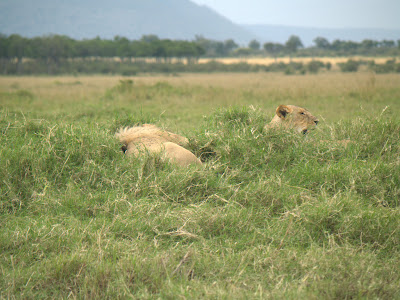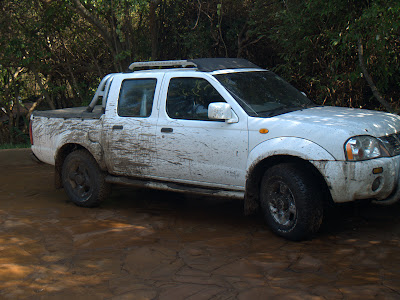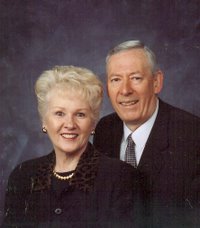Wednesday, February 11, 2009
"DON'T BE SAD IT'S OVER, JUST BE GLAD IT HAPPENED AT ALL"
Our mission is coming to an end and we can't believe it has been 18 months already. We leave for home in two days and we are giddy with joy. Saying that please don't misunderstand we will be very, very sad to leave South Africa. We love the people dearly and we love the country. Our mission is the best mission in the whole world and we feel blessed to have served here.
We are now in the process of training our two replacement couples, this has been our hope all along to have two couples to cover the vast distances that we have had to travel. It seems that due to the fact we have 7 mission,400 units and 23 countries it's been impossible to be everywhere we needed to be. Even with us traveling 50% of the time and not always in pleasant conditions, we just couldn't be everywhere. Now with them splitting up the responsibilities between two couples it is our hope that twice as much work will get done , as my granny used to say "more hands makes the work load lighter".
Jan finally finished making the 300 blankets and hats she had committed too and finally delivered them last week. It was a lovely sight to see those blankets wrapped around those precious new babies, we won't soon forget the warm "fuzzies" we felt as we saw the smiles those blankets placed upon those dear little mothers.
We so appreciate the prayers that you have offered up on behalf of the missionaries serving all around the world, it has given us and all the other missionaries a sense of comfort to know that we are remembered.
We will continue to maintain our blog when we return home to family and friends who are interested in "Bob and Jan's other adventures". We are sure there is much to do and ways to serve when we are once again "civilians". We will be keeping our eyes and ears open to find them.
May God bless you for all you do to further the Lord's work and in helping others along the road in this troubled world.
Love,
Elder and Sister Taylor soon to be Bob and Jan once again!
Friday, January 16, 2009
CAPE TOWN AUDITING TRIP




TABLE MOUNTAIN IN THE BACKGROUND
MISSIONARIES DO HAVE FUN

http://www.youtube.com/watch?v=IwiQopbkP9k



Monday, October 20, 2008
SOURCE OF THE RIVER NILE
Recently we traveled to Uganda to do training and had the opportunity to see the "Source of the River Nile", who would have ever expected a little gal from Lake Arrowhead Calif. and a little boy from South Porcupine,Canada would ever be able to say they had been to the "Source of the river Nile", Livingstone has nothing on us except we didn't have to search for it. We were in Uganda to do training and part of our training was in Jinga in Uganda which so happens is where the Springs from underground rise up and become the Nile. If you have ever read any of Wilber Smith books he talks a lot about the beautiful Nile, and it is. It meanders for 4,000 miles and will take 3 months to travel the entire river. As you know Livingston never did find the source but it was later found John Hanning Speake after the death of Livingstone. The river begins to flow at Lake Victoria and flows to the Mediterranean Sea which takes three months. John Hanning Speke saw this in 1862 viewing it from the western where he stood for several hours just looking at the source of the Nile.
I THINK BOB WAS HOPING SOMEONE WOULD PUSH HIM OFF THE DECK SO HE COULD SAY HE WENT SWIMMING IN THE NILE RIVER!! I WAS TEMPTED


Here is a picture of the group we trained in Uganda, they were lovely men with such sweet and loving spirits. The population of Uganda has a 80-90% unemployment rate but the people don't steal or "hawk" on the streets like they do in some countries.
The country is green-green-green with a plethora of flowers of every kind shape and color, it is a really beautiful country, of course they have quite a bit of rain, which we missed. The flower below is a Protea, which is more like a cactus flower and doesn't look or feel real, it has a waxy feel about it.


There was small group of orphans who were dancing for money with great enthusiasm. We couldn't help wondering what kind of a life would await them.
STORKS-WHO WOULD WANT THESE UGLY BIRDS TO DELIVER THEIR BABIES?
You see these very large birds all over Kenya and Uganda,sitting in trees walking around in parks. They are about 2-1/2 feet tall and homely, looks that only a mother could love. It is really lovely to watch them soar in the air on their large and expansive wings----only in Africa.

Wednesday, October 1, 2008
PROJECT BLANKETS


We have received many e-mails and comments regarding our last blog concerning the Chris Hana Maternity Hospital asking us how they could help our Sisters in Africa. We were very touched for your concern and willingness to help out in some small way. The thought of little babies being sent home from the hospital in nothing but a shawl or even, heaven forbid, a plastic sheet from their mothers bed or piece of the mothers clothing was very distressing for all of us.
Some of the Sister Missionaries in the Area Office have decided to alleviate some of the suffering we see daily, especially when it concerns the little one's. It's our way of helping out using our spare time and some of our personal funds.
We have found that it takes so little to make a big difference here. Have you wondered where those Humanitarian Projects end up that we make during Relief Society? Have you seen the faces of the recipients? Well this is your opportunity to see some of the happy and smiling faces from your contributions. We are making fleece receiving blankets with little hats to match to be given to all the women who have no clothing to take their precious little one's home from the hospital. It only costs $1.50 US to make each blanket and matching hat and they are so cute, even Bob thinks they are so very cute.
Some people have asked if they could send a little money for the moms and babies, others have asked if they could send blankets. The problem with sending blankets is that the cost is so prohibitive, whereas we can make the blankets here for a fraction of the cost and cut out the shipping and import duty costs.

If you would like to help with this project, the best way to handle the finances is to send the money to our daughter Michelle Gilbert, 393 W. 840 S. Orem, Utah 84057 cell number 801-316-6240,who is taking care of our finances while we are on mission. She can deposit the funds into our account and we can purchase the fabric here and the Sisters will get to work. We will give you an update from time to time letting you know of our progress and send pictures via our Blog.
My personal commitment is to make 100 blankets before returning home in February in between our travels and possibly 200 if I stop eating and cleaning our flat.
Thank you for your prayers on behalf of the people of Africa, the members need your prayers they are trying mightily to let the light of the gospel shine here to benefit this beautiful and needy Continent.
Thursday, September 4, 2008
CHRIS HANI BARAGWANATH HOSPITAL


This is a little something for the "girls". For those of you have just delivered a child recently, soon to deliver, had a child already and still remember completely what it was like , you will appreciate this information. Just recently some our Senior Missionary Sisters from the Area Office including Sister Koelliker and Sister Parmley, the area Presidents wives, went to the largest maternity hospital in Africa. We could hardly wait to see just what it was like and when we got our eyes were opened and we thanked our lucky stars it wasn't us delivering a baby here.


1) First off as we walked in we were at the admitting desk where they asked the pregnant women to pay 25 rand for the stay, that is about $3.50 US dollars, now don't get too excited girls (and husbands, who are thinking, this is alright!). If the women don't have the money they are admitted anyway, which is truly wonderful for those who are wanting in the financial side of life. At least here they have some medical help and it's especially good for those little tykes who otherwise wouldn't have a chance due to birthing complications. The hospital is clean and though understaffed they work hard to insure the women go home with a healthy baby.
2) Next they are taken in to a room where they can change out of their street clothes and brought back into a little waiting room, that is out in the corridor where they wait and wait until the little one just can't wait anymore.
3) When the "magic moment" comes and they have either had their water break or they are in a great deal of pain they are taken back to a wall of cubicles with divider curtains where the mid-wives await. It is very dark and dreary in the corridors and not inviting at all. The wonderful thing about this hospital is that it can give emergency medical care to both mother and baby, something that most affordable hospitals in the area can not give.
4) When the baby is born if it isn't healthy they move it to the ICU unit for further and intense medical care. The mother is taken into another area where she is asked to sit on a bench made of wood, it looks like a patio bench but with one slim board and there she sits for 4 hours and then released from the hospital. In the mean time the baby is taken into a small room and checked and weighed and accessed for breathing problems. It is then put in a little isolate and returned to it's mother who with about 30+ women are sitting like cord wood on these wooden benches. I can't imagine how uncomfortable they are at this point sitting on an unforgiving bench with a sore bottom and exhausted. I remember being pampered by a good nursing staff who wanted me to be comfortable and would cater to my every need and then there was a concerned and loving husband by my side. These dear sisters received none of that special care at a very important moment in her life.


5) After 4 hours and the baby is able to leave the hospital, the mother picks up her baby, sometimes wrapped in a nice blanket or in newspaper or a sweater or shawl and we were told by a nurse that even if those lovely things are not available, wrapped in a plastic trash bag. So when your Relief Society asks you to help make newborn kits, just think of these poor sisters. Once the child is wrapped then off the women go, no one knows where she is going or how she will get back to her settlement, she just goes, that was the hardest thing for me knowing what they had just gone through and not knowing how they would get home.


6) If you have to have a C-section you are allowed to stay in the hospital for 4 days and have a luxury vacation. The ward you stay in will be have about 30 beds and not much attention at all, well not any.
7) If the baby is having breathing problems they do have Neonatal ICU that is for the very sick babies. The death rate is very high in that hospital due to underweight babies and ill babies born with Aids or other diseases attributed to Aids and not having any pre-natal care.
8) Last year 26,200 babies were born in this hospital alone (that's even more than in Utah)with a death rate of 700 stillbirths and 300 baby deaths after birth, per year.

So girls thank your lucky stars that you are living in America and that you have good medical care. The African women adore their babies, just like us and they take very good care of them. They carry them around with them almost all the time and the babies love the closeness to their mothers. A child is the most precious gift that the Lord sends to women and that love between mother and child is the same all over the world.


Keep them close!
Jan
Friday, August 22, 2008
Masai Village

This is a picture of our guide to the village. He met us at the Olonana Safari Camp and we walked the 15 minutes to the village. This Masai was an elder. You become an elder when you marry or after the age of 26. When you are between 15 and 26 you are considered a Warrior. And when you are 5 years you begin to herd the goats, which you do until you are 15 when you become a Warrior and begin to herd the cattle.
The Masai are Pastoralists and Nomads. They will live in one place for a maximum of 12 years at which time they will move on to find better grazing ground. Unless their is a drought and then they will send out warriors to find water and better grazing grounds for their new village

This is a communal lodge is mostly for the men but from time to time the women are allowed to enter. The Masai always wear red and or blue. Red is for bravery and blue is for the sky. They believe that God is in the sky but they do not believe in Jesus Christ.

The men are very handsome and are known for their bravery. The women are very crafty and do most of the work around the village, that is very common in Africa. You will see women carrying huge bundles of wood on their backs and you wonder how they can manage such large and heavy loads.

These little children were curious but not about to come out from their house. The houses are made of cattle dung. They are very dark inside with only a small vent to let out the cooking smoke. The beds they sleep on is like sleeping on concrete with an animal skin on top for a mattress. The inside has a tiny room that is for the baby goats and baby calves, yes they sleep right with the people.


This a typical looking Masai, you can tell them apart from all other tribes in Kenya because they all dress very traditionally. The young men are the only ones to get an education, education is not for women.

This is a picture of their homes with a little path way in between. In the middle of the village their is a fenced in area that is a foot deep with dung for the cattle to be brought in at night. The warriors will be on guard at night to protect the village and the cattle.

This is a beautiful unmarried young women, she was stunning and very elegant. The men can marry a woman from another village but when they do she "belongs to them". Women are like their cattle, they belong to them.

We didn't ask how old they live to be but due to their diets etc. we don't imagine very old. Their main food is milk and blood from their cattle. They put a puncture hole into the main vain in the cows neck and fill their gourds with the blood to mix with milk or drink along. The hole is then resealed for another day.

The women are very industrious making beautiful beaded necklaces and other things for the tourists. Their beautiful work is sold all around Africa. This was right out of National Geographic and something we have always read about and longed to see the "magnificent Masai People", living like they did hundreds or even thousands of years ago. No modern conveniences at all, living off the land with reverence for it and it's beauties.
Monday, August 18, 2008
Masai Mara Adventure
The Masai Mara Adventure
Robert D. & Janet L. Taylor
August 2008
The day started out like any other in the untamed bush of the Masai Mara Game Reserve in Kenya Africa. After morning ablutions, we had a leisurely breakfast sitting on top of a small mountain at the Mara Serena Lodge. Even though we are only one degree latitude below the equator the weather is quite pleasant, the lodge is at 5300 feet above sea level and it is the rainy season. The temperature is in the mid 70's. Definitely it is sandals, shorts and short sleeve weather. Sitting in the lodge restaurant and looking down over the savannah is almost like viewing the valley from a small airplane. There are herds upon herds of different animals spread profusely through the valley, as far as the eye can see; elephant, giraffe, wildebeest (gnu), zebra and wildebeest and zebra and wildebeest, wildebeest and wildebeest. Oh, and did I mention wildebeest?
Zoologists estimate that the great migration includes 1.3 million wildebeest, 600,000 zebra and about 300,000 antelope of different varieties. This area has the largest concentration of predators with an estimate of over 500 lions. The Mara River has innumerable hippos and crocodiles. The Mara Crocodile is the largest crocodile in the world. Another key statistic is that the wildebeest alone, will deposit over 60,000 tons of dung to fertilize the grasslands for the next migration.
The park has only a few rules, of which I will quote several of the key ones.
- You may only be on the roads and tracks between 6:00am and 7:00pm
- Stay in your vehicle, especially in the presence of animals
- Try to avoid breakdowns. Take some food and plenty of water for you and the vehicle
- Travel in groups of two or more vehicles if possible
- Be especially sensible in wet weather when most tracks and some roads will be impassable
- If you are an independent traveler and you are going "off the beaten track", let someone know where you are going. Cell phones do not yet generally function in the Mara
- If you break down stay with your vehicle. Walking for help may mean that no-one ever finds you! Sit tight and you will be eventually picked up.
For this day we had one major goal: to witness migration herds swim across the crocodile infested Mara River.
We started by driving our Nissan Hardbody truck with differential-lock down to the river just east of the lodge. The truck had been loaned to us for our time in Kenya by the Church's Kenya Regional Office. We meandered along the river following tracks made by safari trucks. The first place we stopped we got out of the truck and stood on the embankment so we could better see the pods of hippos and lounging crocodiles. These are big crocodiles 10-12 feet long with a tremendous girth that you could not wrap your arms around, assuming that you might be silly enough to try!
We drove further along the river the river and I got my first heart attack of the day. Jan decides to get out of the truck again and stand very close to the edge of the embankment about 15 feet above the dozing monstrous crocodiles. What Jan couldn't see but I could was that she was standing on an edge that had been undercut by earlier flood waters. I expected the edge to break away and her fall to the water's edge. I am sure that she would have survived the fall but the crocs would have made a quick snack of "the white imported American food". After I gave her a severe tongue lashing (see rule number 2 above), we proceeded to the part of the river where the zebra and wildebeest were congregating to cross the river. We stopped a few hundred yards short of the river finding ourselves surrounded by thousands and thousands of animals (without exaggeration).
At this point Jan wanted to take pictures of the swirling masses around us and that's when we discovered that we could not find her camera. It was not in the truck and that's when we realized that it must have fallen out during one of our previous stops. Panicked we picked our way back through the animals and went to where we had started along the river. Just as we approached our first stopping point Jan noticed too late the camera on the ground, just as the front tire of the truck ran over it! Amazingly it wasn't crushed to pieces just pushed into the soft mud and grass. We found the viewing plate broken but otherwise operational. Hopefully, it can be repaired. It has been such a great compact camera being able to take excellent still photos as well as video.
Crestfallen about the camera, we made our way back to the crossing site and were able to find a really good viewing point. This, in spite of the fact, that there were many safari trucks from various camps vying for the best spots.
Our luck was changing just as we got into position the first migration across the river started. The animals cross from the southern plains, north into the grassy plains of the Masai Mara where they will stay until October. This clockwise circular migration occurs every year as the herds follow the rains and the ensuing rich grasses. From the Masai Mara the herds move south and east into Tanzania and the Serengeti plains.
At this point we had achieved our goal for the day! We watched two giant herds swim the river and climb the bank on the far side. The crocs were apparently full from previous herds because there were no attacks while we watched. We learned something interesting from watching. Even though there are thousands of wildebeest and zebra waiting to cross they don't do it en masse. They seem to cross in individual herds of hundreds. Another interesting thing is that they don't just walk to the bank and start swimming. There is a lot of pondering and positioning waiting for a brave leader to make the first move. Once one starts the swim everyone crowds to the edge of the river to follow. They swim across in lines much like ants following one another. There may be one line or several lines but they swim in lines rather than as a swarm.
After watching and filming the crossing of two different herds it was time to head back to the lodge for lunch and a comfort break.
For the afternoon we decided we wanted to try and find a cheetah. We started driving aimlessly west along the river following unmarked trails and dirt "so-called" roads. I might mention here that there are no signs whatever in this reserve. You pretty much have to be mindful of where you're going in relation to finding your way back to the lodge.
About 4:00pm we saw a landie (Land Rover) leave the road and start to climb up the side of the escarpment. This usually means that they have an idea where a cheetah, lion or leopard may have been previously spotted. We watched them climb utilizing our field glasses. They stopped high on the hill about a mile from where we were stopped. We decided to follow and see what they had found. There were vultures around a kill about halfway up. We continued on up to find out that they were only taking pictures of the valley below. We travelled an additional ¼ mile up the hill. I then also got out and started taking pictures until Jan noticed that they had two gun bearers with them. I quickly got back in the car. We didn't have a gun bearer!
As we were heading down the mountain we remarked how thrilling it was to be 4-wheeling on unmarked trails in the Kenyan bush surrounded by wild animals.
We arrived back on a road that would take us to the lodge. Not too far along we noticed a couple of safari trucks heading off-road towards the river. We followed. Because of the previous rains the trails had many mud holes and deep ruts. We trudged on through and found some safari trucks near two groups of lions.
We didn't stay too long because it was getting late and we were a long trek back to the lodge. About ½ mile from the lions, we encountered a monstrous mud hole that I knew that without 4-wheel drive and just our diff-lock there was no way we would make it through. There was another trail around the hole through the trees that others had used to by-pass the mud. I didn't scout it out first. Who wants to walk through trees knowing there are lions around? We headed for the by-pass. Once committed it was too late to turn back. I tried to remember that momentum was my friend and speed my enemy! Once viewed, we realized that the by-pass was every bit as bad as the hole that we had avoided. Two-thirds of the way through the truck totally bogged down, sunk in the mud right up to the axles. Couldn't go forward – couldn't go backward and here we were in heart of lion country miles from nowhere. There was nothing to do but try to extricate ourselves. We had no mud jacks – no shovel – the next best thing – start tearing apart trees with our bear hands to try and fill the ruts in the mud with a base that the wheels could get a grip on. There was fear, exasperation, heavy breathing by two old people from the exertion of such heavy, hard work. I kept getting in and trying to drive the truck. Rocking back and forth, crunching the gears and clutch from first gear to reverse and back again. Nothing! We were going nowhere! It was now after 6:00pm and it gets dark at 6:30pm. What to do? We took a break for a much needed vocal prayer together seeking some inspiration. We knew that if we didn't want to spend the night in the bush that we were going to need some divine intervention. And with the fear of the lions haunting us, we faced an even more persistent foe attacking us from all sides – mosquitoes! Can you say "malaria"?
More branches under the wheels – more rocking but still nothing! We were stuck. It really looked like a long night in the truck deep in the Kenyan bush. We tried our cell phone and it worked. This was the start of small miracles! We called our contact 6 hours away in Nairobi. We asked him to call the lodge to see if they could help us. We didn't know where we were, except that we were maybe 20 kilometers south west of the lodge near a pride of lions. How was anyone going to find us after dark?
I made a unilateral instant decision. I had to try and get help. I ran back 200-300 yards towards the lions. Jan is screaming and crying at me to come back to the truck. But sometimes a "man has to do what a man has to do" to protect his family. Fortunately two safari trucks were still watching the lions. I started screaming "help" at the top of my voice and waving my arms. One truck started up and headed away from where we were. More shouting! More arm waving! There was only one truck left. It started up and started moving to our right. I was sure it couldn't hear or see me either. The light was dim and the diesel trucks drown out faint noises. Finally they turned and started heading my way. In the meantime Jan is in hysterics (her words!) fearing that I am attracting the lions. Once I knew the safari truck was heading our way, I turned to walk back to our vehicle. That's when I noticed three giraffe standing about 100 feet from me. They were just staring at me without moving or twitching. I am sure that they were wondering why this two-legged, white boy was screaming and flailing his appendages so close to lions.
When the safari truck, I had hailed, reached us, almost simultaneously two other safari trucks arrived from the other direction. Safari trucks have radios with which they talk back and forth to each other. Whether they used the radio or whether the Lord sent them our way to rescue us, I don't know. I choose to believe that God listens to our prayers even after we have done something stupid.
None of the trucks had winches or tow chains. One of the safari truck drivers offered to drive it out. Jan and I and one of the other truck drivers pushed. Miraculously, that's all it took. The truck was on high ground again. We were covered in mud. We both had on sandals. I had on shorts. My legs and hand were all cut up from tearing down trees with bear hands. Blood and mud – but we were out! One of the safari trucks was from our Serena lodge and he told us to follow him back. Before we could get turned around in the high grass we had lost him. In the very dim light we thought we were following the right truck but we weren't. Further along the track split, we thought that were on the right track but then realized that the truck we were following was on another track going away from us. We had to quickly cut across the savannah without a track to try and catch up again. While crossing the open in almost dark we hit a mound with the left front tire and a hole with the right front. I was sure that we were going to tip over! We had been driving without seat belts. Jan got thrown around like a rag doll. It was like being in an accident. Her head hit the roof – her tailbone hit the arm rest – her knee hit the dashboard – and an elbow hit something else! About that time the thought occurred to me to tell her to put her seat belt on. Whoops! Too late!
We finally made it to a gravel road. That's when we discovered that we were following the wrong truck. It's now pitch black out. There is cloud cover so there were no stars and no moon to help us and our headlights are covered with mud (and we had no desire to get out in the dark to clean them off!). We estimate that we're now about 15 kilometers from the lodge and we hope that we're on the right road. Remember I said there were no signs in this reserve!
Finally we see lights on the hill and know that we will make it back. After parking, we walk through reception where the manager greets us. He knew who we were by the mud and the blood and the tears. Our contact in Nairobi had contacted him about our plight and he had received a radio message from his driver that we were out of the mud and heading back.
In the future when someone brings up the subject of off-road 4-wheeling, we'll smile and think – "4-wheeling without the danger of being eaten, just isn't as much fun"!
Postscript One:
The next morning as I was lying in bed reliving the events of the previous night, I was sure that I could hear our Guardian Angels complaining:
"This is not what I signed up for. I agreed to missionary protection."
"I am not trained in wild animal protection."
"I'm complaining to the Guardian Angel Supervisor. This sort of thing is not in my contract."
"My training is in city traffic and muggings. What were they thinking going out with wild animals alone?"
"They read the rules. They broke them all. Did they still expect our help?"
Postscript Two:
A few days later when we were at the Kilaguni Lodge in the Tsavo Park near our training in the Chyulu Hills, I was asked by a Safari Driver and one of the local lodge workers what had happened to my legs. (My shorts were now clean and my wounds clearly visible.) I related the above story. After completing the story and expecting to be chastised for getting out of the car near lions, the Masai safari driver said to me, "sometimes a man has to do man things!" Almost my words exactly. After all Jan is my princess, I am her knight. I had to save her. Right?
Saturday, July 19, 2008
SATURDAY SHOPPING AT KILLARNEY MALL
It is Saturday morning about 9:00AM and I had just hurried to get my Saturday grocery shopping finished before the food that I wanted to buy had been swept off the shelves. It is the kind of store that one day you can find something and the next day or weeks it is not available.
The shopping mall is directly across the street from where we live in Dukes Court. The mall is very convenient, especially since we have very small refrigerators that don't hold very much cold food.
The mall has a variety of stores that can accommodate most of our daily needs. There is one large grocery store and one very small grocery store, several small clothing stores and a couple of larger department stores, 2 beauty salons, a pharmacy and a drug store and a movie theater with three screens and a couple of book stores, plus several cafes. But most of all it's convenient!
I think spending so much time in Africa my eyes don’t see the uniqueness of this place we call our second home. When on our first mission here it was new for the full eighteen months but now most things are common place . But this day was different because as I walked into the mall the lights were out and what shops were open either were lit by candles, flashlights and a lantern here or there . The reason for the power outage was due to “load shedding” a polite term for infrastructure failure. All over SA it’s become a fact of life that power goes off in different areas of the country at different times of the day and will stay out in that area for at least 4 hours. It can be very inconvenient if it hits during rush hour . Traffic lights are out, alarm systems are shut down, no lights to get ready for work by. For business owners and their employees , lost revenuers, lost wages.
This Saturday was different, instead of my eyes seeing darkness the dark seemed to open my eyes to see more clearly the interesting and varied environment we live in. Everyone in the mall had a resigned attitude about the power outage. Store employees were sitting outside darkened stores, chatting with shoppers, or fellow workers, waiting for 10:00 A.M. to arrive when the power should be restored. Some restaurants and the grocery store I shop in have turned to generators and one little restaurant works off of propane offering a limited breakfast menu. Interesting to me is how the people have adjusted and resigned themselves to the situation. The resiliency of these people is evident in their lives every day.
As I look around I see women in Kurtas and men in Kandura’s, I see colorful traditional African clothing, on the faces of these beautiful bright and smiling people. People speaking many languages walking side by side in an interesting acceptance of one another.
After finishing my grocery shopping and finding almost everything I needed, for a change, I was standing in the check-out line people watching as usual. Two isles down were two teenage girls one of them was filling time by doing a little dance to the piped in music over the stores speakers. She was smiling and chatting with her friend and was caught up in the beat and rhythm of the African music, then she began to do a little dance, swaying and bobbing her head from side to side to the tune, oblivious to those around her.
It's not long before I notice I am also tapping my foot and give way to a smile that creeps onto my face as I see the joy in her face. I notice others with smiles on their faces bobbing their heads a little also. Who would have thought you could find happiness in a grocery line?
It's that way when we go to Church or to the Area Office where we are surrounded by our black brothers and sisters, smiles are quick to surface on their faces. There is singing in the offices by staffers singing or humming hymns and songs of praise. At Church, especially the black Wards, the singing is wonderful, bright smiles lighting their faces for those minutes they have no worries. There is a special handshake the Africans use to greet you , it speaks of friendship and acceptance and we know we are welcome.
That's what I saw and remembered today grocery shopping in Africa, it's not our number one home but we call it our second home and runs a close to our #1 home.
We thank God each day that we are here in this unique place where the lights may go out any time of the day or night but the gospel light still shines brightly and we are blessed to be a part of it. Life is good!
Can you find joy in a grocery check-out stand, at the very least smile and see who smiles back.
Cheers!
